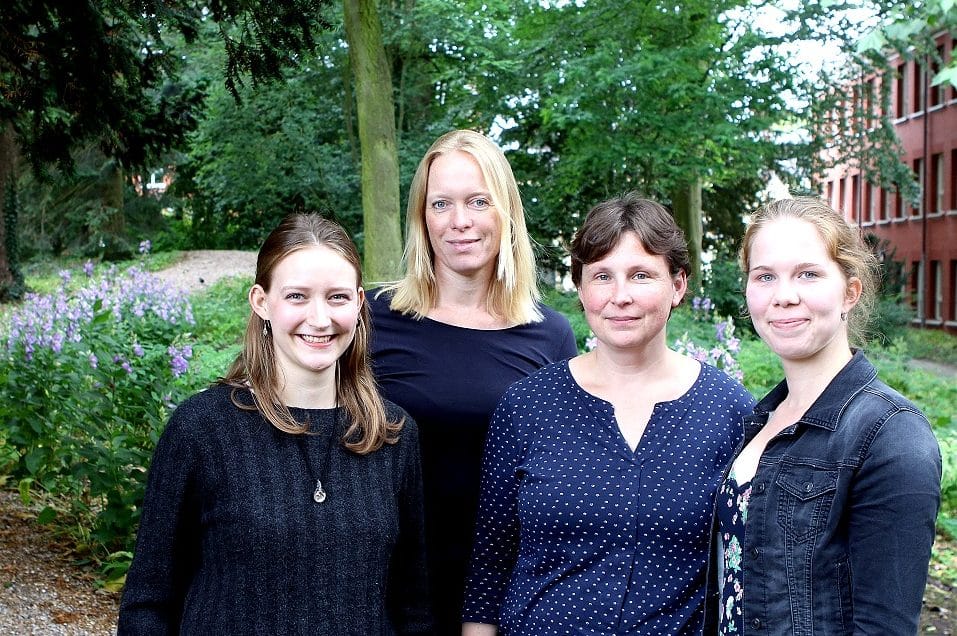
Lessons learned on how to improve the integration of refugees in the Dutch labour market
For some type of research, it is extremely important to read academic articles, for other research questions, it is much more important to learn about the daily challenges outside the university halls. The latter is especially true when starting a project on the labour market integration of first-generation migrants in the Netherlands. In this case researchers and practitioners can both learn from each other and together help to improve current practice.
Between 2014 and 2017, more than 150,000 refugees applied for asylum in the Netherlands. About 2.5 years later, only 11% of the refugees who arrived in 2014 and received a residence permit have found a paid job (CBS, 2018). In the Netherlands, the integration of migrants is decentralised, which means that support and programs between municipalities can greatly differ.
Collaboration with The Hague Process (THP)
To examine why labour market integration has been so poor, and to find ways to improve it, BSS Researchers Liesbet Heyse (Sociology) and I (Nina Hansen, Social Psychology), worked together with The Hague Process on Refugees and Migration (THP). This is a leading, international, and research-orientated NGO working on innovative solutions to improve labour market integration of migrants and refugees. Together they are currently developing a training programme for Dutch employers and managers to better prepare them to hire and integrate first generation migrants. Integration is a two-way process, and it is therefore not enough for migrants to be prepared to enter the local labour market; employers must also be prepared to provide migrants with an environment in which they can thrive.
Together with two PhD students and one master student of the University of Groningen, researchers travelled to The Hague in July to meet the Training and Research Manager, Teressa Juzwiak, at the THP office. We were all very curious to learn more about the new Migrant Training and Placement Programme implemented by M-Capital, a social venture founded by THP.
Improving migrants integration in the labour market
THP has over 20 years of experience in the field of migration policy and research. They developed a unique solution to answer the challenges faced by both cities and businesses regarding labour market integration of migrants. They work with qualified trainers for the training of unemployed migrants in skills to then place them into jobs available in companies, ensuring a match between demand and supply of skills in the local labour market. THP has thus far implemented three different programmes, tailor-made to the needs of the local labour market, the individual businesses, as well as the participating migrants. During the meeting in Den Hague we were working on the development of a new training to prepare Dutch employers to hire and integrate new migrants in their working environment. THP had gained very relevant practical experience for this endeavour whereas we presented our academic knowledge about cultural differences and how to best stimulate openness for contact.
Since 2015 new groups of refugees for example from Eritrea and Syria have migrated to the Netherlands. These new groups differ for example in their educational background and work experience compared to groups which have settled in the Netherlands many years ago. Addressing their needs for labour market integration requires cultural awareness, migrant expertise and a tailor-made approach.
“THP’s programme was designed with this in mind and, by working in partnership with the municipalities, as well as in close contact with the businesses to properly assess and meet their changing demands, they are able to strengthen the local efforts in this field. Trust is essential in this process,” Teressa Juzwiak, Training and Research Manager at THP
Each group that was trained by THP had their own tailor-made programme. For instance, in partnership with a foundation that houses young Eritrean refugees in The Hague, THP developed a programme addressing freedom and choice, aiming to assist the participants in their future choices regarding study and career and preparing them to thrive in the Dutch labour market. This practical experience with Eritrean refugees is very useful for the new training for Dutch employers. We scientists were eager to learn more about the specific needs of different refugee groups to prepare and assist the employers to integrate this specific group at the work place.
“During my internship at the THP, I learned how policy can be formed based on research and further formed into actual training programs. Working with the team at THP gave me a better understanding of the importance of research and the challenges on meets when trying to translate it into societal results. The internship inspired me to further study the challenges of labour market integration of migrants.” Aurora Krogh, research intern from the sociology master program
This meeting was very insightful and inspiring for all of us. However, it also had a very sad side. After 20 years of successful work THP had to decide to close their doors in August 2018. The funding situation has dramatically changed in the last years, so that THP is not able anymore to continue their important work. Just after they had implemented their two new training programs in The Hague and the first participants started their first real job.
“Attending a training session for young Eritreans, has enabled me to gain first-hand knowledge on the relevance of culture and its impact on the recruitment and retention of migrants in the labour market. I very much valued the collaboration with THP, which pathed my way to conducting applied research in the field of labour market integration.” Anne Kuschel, PhD student in social psychology and sociology, member of the research team
As researchers we were very lucky to learn and collaborate with THP. Their experience has greatly influenced our work and offered our students a unique learning experience.
“The discussions with Teressa Juzwiak from THP enabled me to better consider not only scientific knowledge but also practical insights in developing a training for Dutch employers and managers to improve the selection and retention of first generation migrant workers.” Marloes Huis, junior researcher in a project funded by the National Science Agenda.
The collaboration between THP and us has taught us how important it is to collectively study the complexity of labour market integration of first generation migrants. As a third-party THP mediated and implemented sustainable solutions to both help filling labour market shortage and help cities to effectively integrating migrants by facilitating their access to the labour market. As scientist we were able to discuss our theory-driven ideas on how to create cultural awareness and openness for integration among employers. Labour market integration involves two parties, namely employers and new employees and needs new evidence-based approaches to further increase the number of refugees who find a fitting job. We hope that the training we are currently developing will also contribute to the integration.
NOTE. Picture represents the research team: Anne Kuschel, Nina Hansen, Liesbet Heyse, and Marloes Huis.



